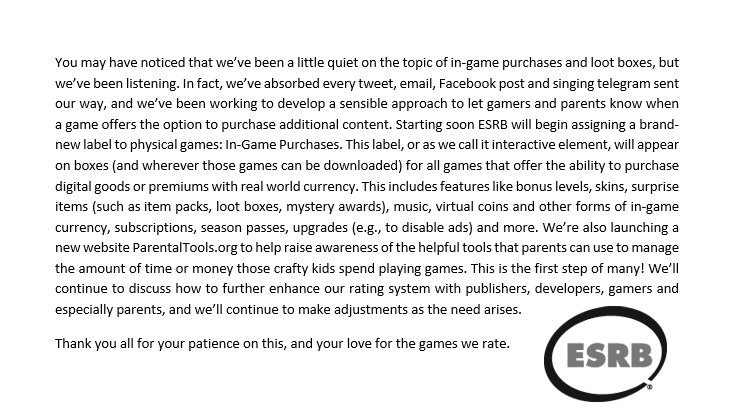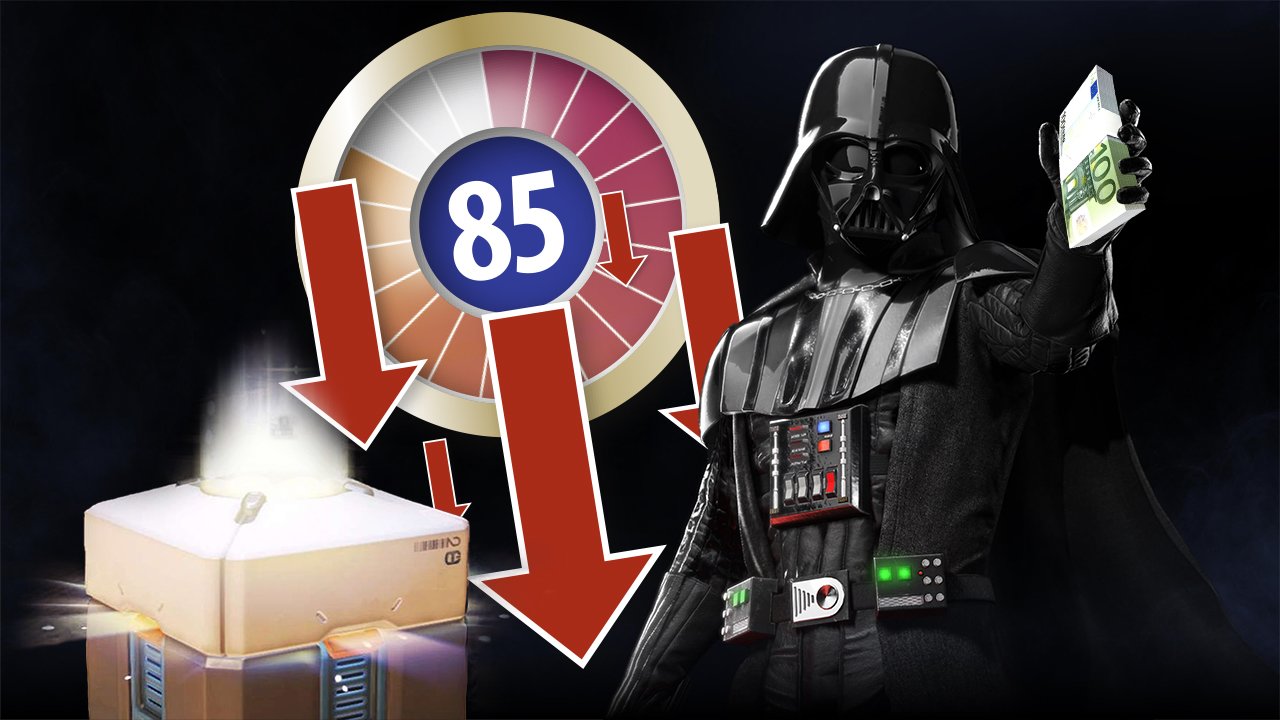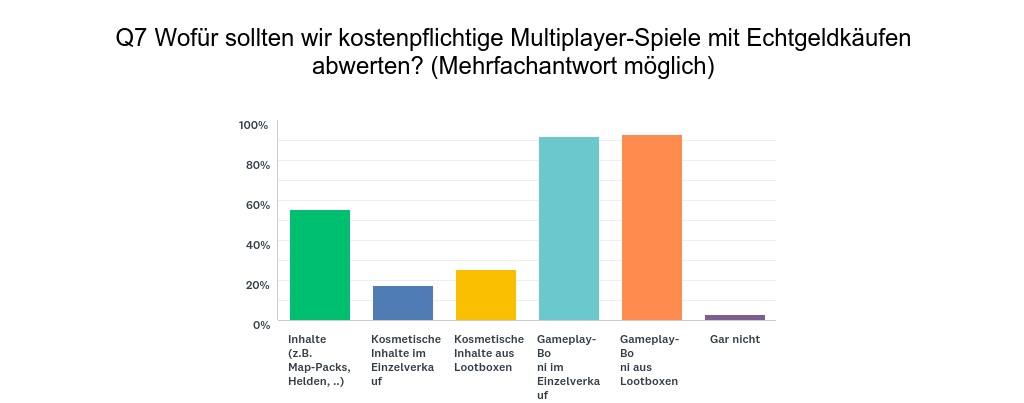Viata
Arcane
Yes. The same reason I needed SJW to find shit devs. Otherwise, I'd not know that Obsidian was full of pussies that can't even keep a joke because it goes against the SJW hivemind.You need loot boxes to find shit devs?
Yes. The same reason I needed SJW to find shit devs. Otherwise, I'd not know that Obsidian was full of pussies that can't even keep a joke because it goes against the SJW hivemind.You need loot boxes to find shit devs?
Nah, plenty of ways to get around it. Can't sell loot boxes? Sell the equivalent of Baal run entry tokens. Sell temporary "premium" account mode that gives more/better rewards.

https://venturebeat.com/2018/03/08/...game-updates-after-tightening-loot-box-rules/State lawmakers on Tuesday unanimously advanced two Senate bills and a House bill that would regulate video games featuring potentially exploitative transaction systems. Senate Bills 3024 and 3025 passed a third reading by the Senate and now move to the House. Both bills seek to regulate monetization schemes in video games that many think are exploitative and promote addictive gambling behaviors.
SB 3024 would prohibit the sale of video games that feature systems wherein players can spend real-world currency to purchase a randomized reward — or purchase a virtual item that can itself be redeemed for a randomized reward — to anyone younger than 21. SB 3025 would require game publishers to post warning labels on games featuring such systems, as well as disclose the probability rates for each randomized reward that can be purchased. These disclosures would apply to physical and digital copies of games.
House Bill 2727 is functionally identical to SB 3025 and passed a third reading by the House. It now will go before the Senate. A fourth bill, House Bill 2686, was functionally identical to SB 3024, but Democratic Oahu Rep. Chris Lee, who spearheaded the House bills, said it was abandoned in January because of its companion bill’s successful progress.
Mobile games like Nintendo’s Fire Emblem Heroes and Square Enix’s Final Fantasy Brave Exvius aren’t pushing out updates as expected on iOS devices today. This is likely because Apple’s new App Store guidelines, which stipulates that developers must disclose the odds of getting certain items in loot boxes.
Apple’s updated guidelines say: “Apps offering ‘loot boxes’ or other mechanisms that provide randomized virtual items for purchase must disclose the odds of receiving each type of item to customers prior to purchase.” GamesBeat has reached out to Nintendo, Square Enix, and Apple for comments and will update this article when we hear back.
regulation is still regulation.
regulation is still regulation.
Libertarian spotted.
Opinion dismissed.


As a parental resource, it continues with basic-bitch information like "don't tie your kid's phone to a credit card" etc.Some online games include activities and features that are normally associated with gambling—like ‘loot’ boxes, ‘bundles’, ‘crates’ and ‘cases’ that provide a random chance to win virtual items, which can include an in-game currency. Many games operate on a ‘freemium’ model. Your child can access the basic game for free, but might need to purchase credits, keys or in-game items for additional content or to access special features, including the chance to win items in a loot box or crate. These items can also be acquired randomly, as a reward through gameplay, or exchanged between players. In-game items can include an in-game currency, equipment, tools, weapons or ‘skins’. Skins are used in some of the most popular games to cosmetically alter a player’s weapon, equipment or avatar and can vary in their value depending on how rare and popular they are. While these items can’t be exchanged for real money within the game, there are third party websites—which are generally not approved by the video game industry—that advertise and offer users the opportunity to gamble these items and convert them to cash. This could potentially be an incentive for young people to spend more on in-game items in the hope of cashing in the rare and popular items at a profit.



You need more drinking and women in your life. For this kind of money you can have a blast with hookers cocaine and a lot of drinking. Better yet,find yourself a nice slut to throw away your money.I love cosmetic loot boxes. For a lot of games they bring continued support, free maps, no rushed out v1.5 of the game to make new sales, etc.
It isn't like developers will continue to make these hats if they can't get money for it. The days of Blizzard supporting D2 for years on box sales alone aren't coming back. They've already seen that people are willing to pay for this stuff. Really, if someone is willing to spend $1,000 to get some silly digital hat then they're going to piss that money away someplace else. At least this way I benefit.
I am actually OK with F2P games having a cosmetic item store. Buy a football helmet, trick your character out with some fly clown shoes, fine. Pay-to-win or xp boosts, ehhh, I don't like it but I understand if the game is F2P in the first place; or if it's a retail priced game, as long as it's fun without them, no skin off me.I love cosmetic loot boxes.
Linking "Cracked" as an authorative Source for anything rather damages your argument than helps it. I think the main issue with exploitative game design is that the games themselves suffer from it and become shit. Instead of designing a content-filled, action-packed, fun experience they'll design something with lengthy progress, "fun enough" to try to keep people playing, but otherwise boring and grindy and trying to maximize player spending. The entire game concept and gameplay then becomes about getting people to pay up. Instead of classic Diablo or Diablo 2 you get Auction House Online. Instead of fast-paced Dungeon Keeper you get mobile rip-offs trying to make people pay for removing blocks of earth or having to wait days. Even when it's "just cosmetics" or faster progress it can partially ruin the game, for instance how they turned TF2 from a fun competitive Shooter into Hat Fortress where everything and almost every Update is about opening lootboxes, "crafting" shit and all the new hats and gear or how they turned Counter Strike into a prime example for Online Gambling with that "Skin Betting" shit. With League of Legends they kept introducing overpowered new champions and nerfing old popular ones so people would be incentivized to get the new ones etc. I'd say there's no "monetization" model for InGame stuff where the entire game and gameplay concept around it doesn't suffer heavily from being designed in a way to apply psychological pressure on the player to pay or have to grind for obesessive amounts of time instead of having fun gameplay/entertainment value for ones money.Read at least until the part about ZT Online.
Abwertung für Pay2Win & Mikrotransaktionen - Wir ändern unser Wertungssystem
Die Spielewelt hat sich durch den zunehmenden Einsatz von Mikrotransaktionen und Lootboxen verändert. Wir reagieren und passen unser Wertungssystem an.
von GameStar Redaktion, 16.03.2018 16:46 Uhr

Wenn Entwicklern und Publishern das Geld wichtiger als der Spielspaß ist, werden wir ab sofort abwerten.
Egal, ob Mittelerde: Schatten des Krieges, NBA 2K18 oder Star Wars: Battlefront 2 - in den Kommentaren zu unseren Spieletests der vergangenen Monate ging es häufig nur um das eine: Lootboxen und Mikrotransaktionen. Kein anderes Thema sorgte letztes Jahr für mehr Diskussionen und Wut unter den Spielern. Aus gutem Grund kürte Martin Deppe 2017 zum Jahr der Lootbox.
In der Redaktion haben wir die Entwicklung hin zu immer mehr und immer offensiver eingesetzten Echtgeld-Shops in Spielen von Beginn an kritisch gesehen. So warnten wir bereits zur E3 2017 vor dem Loot-System in Star Wars: Battlefront 2, weil uns Übles schwante. Auch danach bezogen wir in Kolumnen und Specials klar Stellung gegen eine Verkaufspolitik, die Einnahmen über Spielspaß stellt.



It isn't "customer friendly", but I don't think it is necessarily evil or exploitative. Many governments love lotteries and many (most?) of the people who buy those tickets think they have a good chance of winning.



That is why we have privet lotteries,that way we know to which criminal the money is goingIt isn't "customer friendly", but I don't think it is necessarily evil or exploitative. Many governments love lotteries and many (most?) of the people who buy those tickets think they have a good chance of winning.
Government run lotteries usually are exploitative. The people with the least end up paying the most, and the money the government makes usually doesn't even reach the things they claim it's for, like education and such.
 .
.
A quartet of bills that would have regulated potentially addictive “gambling” systems in video games died after failing to meet legislative deadlines. Two House bills and one Senate bill relating to video games all failed to meet final deadlines since being introduced in January, while a second Senate bill was amended from its original purpose to a completely unrelated subject. The four bills originally would have regulated “loot boxes,” a controversial — and, some say, predatory — practice in video games wherein players can spend real money to purchase one or more randomized items in a system many compared to gambling.
One of the House bills — HB 2686, which would have prohibited the sale of video games containing loot boxes to people younger than 21 — failed to move past a single committee in the House, and was killed by the end of January. A corresponding bill in the Senate, SB 3024, successfully crossed over into the House in early March, but likewise passed no committees after that. The other House bill, HB 2727, would have required game publishers to disclose the probabilities for each random item received in loot boxes, as well as to display a label on a game’s packaging warning about the presence of in-game purchases. That bill crossed over into the Senate and stagnated, failing to pass any further committees.
Senate Bill 3025, meanwhile, originally was a companion bill to HB 2727. However, the House Committee on Consumer Protection and Commerce amended the bill earlier this month to remove all aspects of its previous text and replace it with a requirement for franchisees to disclose if they are not participating in promotions of the franchise — for example, if a Hawaii location of a fast-food restaurant chain were not included in a nationally advertised deal. That bill was passed by all committees in both chambers and will face a final vote in the House.







